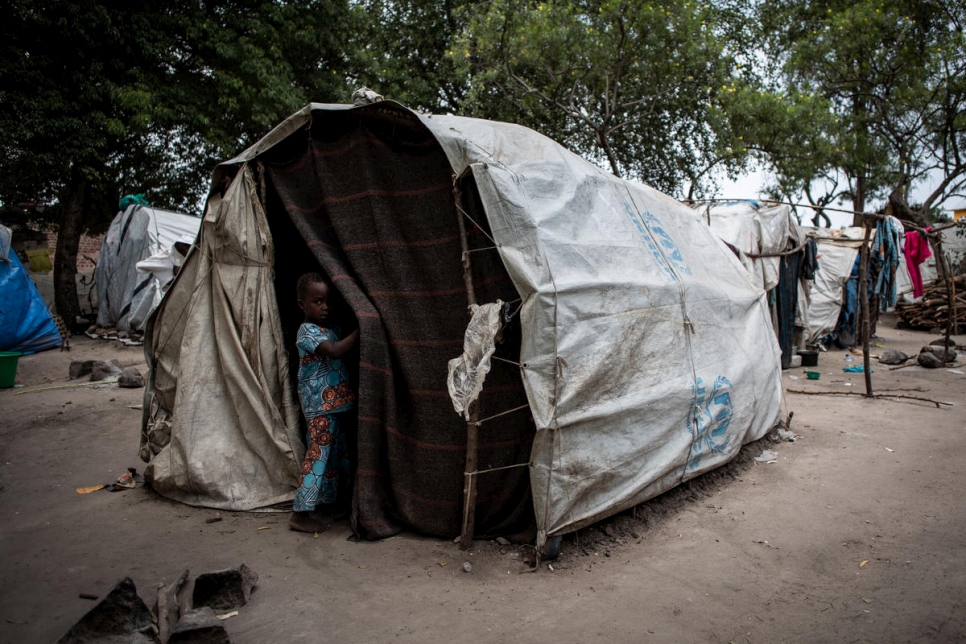People displaced in eastern DRC face widespread human rights violations
This is a summary of what was said by UNHCR spokesperson Babar Baloch – to whom quoted text may be attributed – at today's press briefing at the Palais des Nations in Geneva.

A child stands outside tents at a site for internally displaced persons in Kasenyi. © UNHCR/John Wessels
UNHCR, the UN Refugee Agency, is alarmed that hundreds of thousands of forcibly displaced people in eastern Democratic Republic of the Congo (DRC) are not only living in dire conditions without proper assistance but are unprotected and exposed to extreme human rights violations on a daily basis.
Some 300,000 people, mainly women and children, were displaced in the aftermath of a wave of brutal attacks in June 2019 by various armed groups in the country’s Ituri and North Kivu provinces. Prior to this, an estimated four million people were already displaced across DRC – some 10% of the global population of internally displaced people.
Five months on from June’s attacks, killings, sexual violence and abductions persist amid continuing conflict. Many women and children are still living in precarious conditions, sleeping in the open or in overcrowded public spaces further exposing them to risks of harassment, assault or sexual exploitation, which according to the displaced people are widespread. In October alone, UNHCR staff recorded at least 1,000 human rights violations in the two eastern provinces.
Civilians live in fear of death and destruction. On 30 October, a 38-year-old displaced man was killed by armed men in Djugu Territory, only one instance of incidents that take place on a near daily basis in this area.
UNHCR has stepped up its response to the growing displacement crisis in eastern DRC, but needs additional resources to continue its support and improve conditions. We are deploying additional staff and have built communal hangars and emergency family shelters to help keep displaced people safe. Basic items such as blankets, laundry soap and jerry cans have also been distributed, while women and girls receive sanitary items for their personal health and hygiene.
UNHCR needs US$ 150 million to respond to refugees and displaced people’s needs in DR Congo this year, but so far only 57 per cent has been received. Funding shortages are severely affecting the displaced people’s ability to meet their own basic needs.
For more information on this topic, please contact:
- In Kinshasa, Fabien Faivre, [email protected], +243-825 443 419
- In Geneva, Babar Baloch, [email protected], +41 79 513 9549
- In Geneva, Charlie Yaxley, [email protected], +41 79 580 8702
- In New York, Kathryn Mahoney, [email protected], +1 347 443 7646
